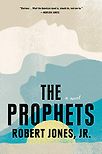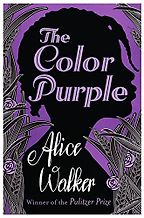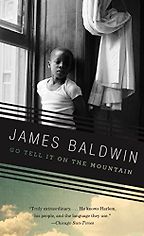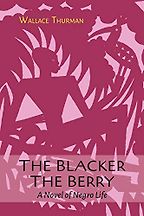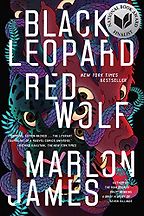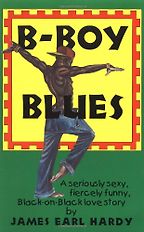You’ve recommended some wonderful books and they’re all novels. Do you think fiction is the best way of exploring some of the themes in these books?
Yes. And the reason why I believe so is that Toni Morrison said it best: fiction is not fact, but it is truth. And rather than autobiographical works, or some sort of anthropological or sociological works—which make the exploration of these themes a little bit too clinical—to create a world in which you can imbue it with all of the richness and dimension, and also some of your own, original ideas, seems to speak to something in human beings that is almost intrinsic to the way we interpret reality. We love stories. When you tell them in this way, they seem to be more convincing. They seem to have a greater impact. I was just reading an article a few weeks ago about how reading helps develop empathy. I think when you cast these characters under the glare of fiction, which to me is just so powerful, you lead the reader toward understanding. So, I think fiction is the best place to tell these types of stories.
Your book, The Prophets, is set on a plantation in the American South. It is a novel, but it feels very realistic, it fitted in very convincingly with some of the slave memoirs I’ve been reading this year. I wanted to ask, did you do a lot of research on the historical background before embarking on this truth telling?
I did. As an undergraduate, Africana studies was my minor and as part of that I got to read incredible pieces of literature, including some of the slave narratives, written by enslaved people themselves. I also read many books on race and gender theory.
In my own family, I am a descendant of people who lived in the American South. I am the descendant of enslaved people. Some of the oral histories have made it to present times and I grew up hearing certain stories. My great-aunt Annie, who lived in South Carolina—she passed away long ago—actually lived on a plantation that was given to her by her grandparents who used to be enslaved. The plantation owner gave them a parcel of land, and she and her husband actually built their own house on that land. So this was in the atmosphere around me. I was drawing not just on written texts, but also on some personal history.
What inspired you to write it?
As I mentioned, I was an Africana studies minor and through all of the texts that I’ve read something stood out to me as missing—and that was the Black queer character. Of course, when we get later in the history, such as the Harlem Renaissance period, you start to see that emerging, but the question for me was, where were they before that? Did they just magically appear in 1929 Harlem? So, I searched and searched to see if there was any evidence, or any record of it before that time, and the only thing I found was in a slave narrative called Incidents in the Life of a Slave Girl by Harriet Jacobs. She talks about how a master raped one of the enslaved men. Then, in Toni Morrison’s Beloved, the character Paul D is sexually assaulted by an overseer. The question for me was: Alright, but what about love? And since Toni Morrison—returning to her again—said, if you cannot find the book you wish to read, then you must write it, I knew that this was something that I would have to write. It terrified me because I didn’t have any foundation. A lot of it would have to be imagined thoroughly. And that was the beginning of The Prophets. It took me about 14 years to write the book, but here it is, and I hope readers find it valuable.
It’s amazing. You’ve done an incredible job.
Thank you.
What were you doing those 14 years when you weren’t writing?
It was incredible. I started writing the novel my first semester of grad school. I was going to grad school full-time and working two part-time jobs. It was difficult to find the time to write. I often wrote during the witching hour. At three o’clock in the morning, I would wake up and write a paragraph. Or, on my commute to school and work, I would be writing on buses and trains, on scraps of paper. I just never gave up. That was the key. Even when I believed that no one would want to read it, that it was taking me too long, that no one was going to believe it, that they’re going to think it’s too far-fetched, something—perhaps my own ancestors—compelled me to continue writing. It was not always joyous. It was sometimes gruelling. But I kept going. And it was very difficult because I wanted to devote much more time to it, but life interrupts. I had to earn a living. I worked at the Scholastic Store, I was a tutor at the college at which I received my degrees. And then I eventually got a full-time job at Brooklyn College as a writer in their communications department. All of those things, particularly when I had to write for the college, took away the creative spark. I had to keep pushing myself to do it and then, finally, I got it done.
Let’s move to some of the books that you’re recommending. Are they all books that inspired you, or what brings this group of five books together?
The primary reason is that each of them deals with the Black queer experience to some degree, whether it’s in the distant past, or the more recent present. They all give us a full picture of what it means to live at that intersection of Blackness and queerness and how the world reacts to that axis of existence. They’re all joined in that way and that was what drew me to them—because these books made me feel as though I had a right to exist. I was being erased from the formal or mainstream canon, but here I was being celebrated and seen in this one.
Yes, because going through these books from afar, they struck me as depictions of the 19th and 20th century American experience. You’d chosen a very specific title—books by Black queer authors—but these books are also much broader than that.
I return to Toni Morrison very often because she’s probably my favourite author of all time, but she says that where you find universality is in the specificity. We always think we have to water down or broaden our experiences for people to understand them, but really where we find commonality is in how specific we can be about our own lives. It’s on the granular level that we begin to understand that we are more alike than we are not. And so yes, I find that to be the case, that these books do have a very universal appeal because they’re so specific.
Let’s turn to the first book on your list which is The Color Purple by Alice Walker from 1982. This book won the Pulitzer Prize and was turned into a movie by Steven Spielberg, so it was quite a mainstream, popular book, wasn’t it?
It was, indeed. I actually came to this book because I saw the movie when I was 14 years old, when it first came out in the theatres. In the Black community, it was such an event to go see this film, because it was the first time in recent history that a story about Black women was being told this way on the big screen. I went with my cousin. She and I watched it and we cried like babies at the heartbreaking moments of the film. I didn’t even know who Alice Walker was, or that it was based on a book. When I found that out, I thought, ‘I have to read that book!’ I read it and fell in love all over again with those characters, because I got to know them so much better in the book.
“Toni Morrison said it best: fiction is not fact, but it is truth”
Alice Walker talks about queerness in a way that is just so natural and so beautiful, but she also talks about how the world seeks to suffocate the Black queer person, to force them to be something other than that through means of violence, and how what conquers that is love.
Alice Walker is one of the most brilliant writers and The Color Purple is one of my favourite books of all time. The way the story is told: as a letter to God, initially. Then the main character realizes that God is this patriarchal construct that means her more harm than good, so she shifts, and now she’s writing letters to her sister, who was really her only saviour in life. It’s such a profoundly moving testament to the power of love, love between women in particular.
That’s very much at the centre of your book as well, the love between the two main characters.
Indeed, and I believe that Alice Walker’s A Color Purple had a serious impact on how I decided Samuel and Isaiah, the two main characters, should love: that their love should not be a storybook romance. It should be complicated, it should be difficult, but it should also be naturally intimate and strong at its base. Alice Walker does a brilliant job of that.
Next up on your list of the best books by Black queer authors is Go Tell it on the Mountain by James Baldwin, which was published back in 1953.
I actually run a social justice social media platform called Son of Baldwin because I watched a documentary back in around 2007 where James Baldwin’s brother was talking about his final days before he passed away. James Baldwin said to his brother, ‘I just hope someone finds me in the wreckage and realizes the work that I was trying to do and maybe continue it.’ It felt like he was speaking directly to me, because here we are, both Black and queer, both writers, both growing up in New York City. He was such a brilliant writer and at that time, I thought, ‘No one’s talking about his work or the impact of what he’s writing. No one’s talking about the subject matter that he was writing about. Maybe I can start some sort of platform where we can have these conversations?’ Son of Baldwin grew out of that.
Get the weekly Five Books newsletter
Go Tell it on the Mountain struck me deeply because it’s wrestling with Christianity, and what Christianity does to the Black queer person. Christianity attempts to tell the Black queer person that they are sinful, that their desires are unnatural, and that they must suppress them—and not just suppress them but change them into something else in order to be seen as worthy by God. And in The Prophets that is one of the central conflicts. You have Amos, who is newly converted to Christianity, attempting to get Samuel and Isaiah to change for the benefit of the plantation. That is something that happens in real life, to this day, where you have Black queer people who are devoutly Christian and cannot reconcile what their pastors and other clergy are telling them with their own existence and intrinsic feelings. And Baldwin captures that tension so beautifully and so heart-wrenchingly in Go Tell it on the Mountain.
It’s a novel, but it’s supposed to be semi-autobiographical: what happens to John in the book is what happened to James Baldwin?
Between the ages of 14 and 17 Baldwin was actually a pastor in a church. He was a preacher. At such a young age, he was seen as a prophet, if you will. But he realized, age 17, that it was just not going to be possible. He was coming to terms with who he was as a homosexual—as they called it in those days—and he realized that the church would not be a place where he’d be allowed to tell his truth. So, he broke away from it.
Yes, this book is autobiographical for Baldwin. It takes place in a day and it feels like it takes place over a longer span, because he does these interesting interludes where he goes back in time to talk about his family lineage. It’s a beautifully written book. I think it’s his finest work, even though it’s his first work, and other works are more celebrated. But for me, it’s his best. I love it.
I was excited you recommended James Baldwin because I hadn’t read a book by him yet, but I’ve been wanting to because his name has come up quite a few times this year as an important writer to read. Do you think there’s more awareness of him now than there was?
There has been a renaissance when it comes to Baldwin’s work in the last maybe four to five years. People have really returned to his books. I’m actually in contact with his nephew, Trevor Baldwin. He said to me that I was one of the first to return to him and that the family wanted to thank me for bringing attention back to him. I can’t take the credit for his marvellous return, but I’m just so glad that so many people are rediscovering his works. They call him a prophet, but I really don’t think he was prophetic. He was just exceptional at understanding history and understanding people and knowing that we constantly repeat our mistakes, because we are constantly denying our history and refusing to reckon with it. Baldwin knew that better than almost anyone else. He was fantastic.
We’re now going back even further in time to the third book you’ve chosen on your list of best books by Black queer authors. This is The Blacker the Berry by Wallace Thurman, which was published in 1929. He died very young, didn’t he?
Yes, he was 32 when he died of an illness, I think it was tuberculosis. Wallace Thurman was a brilliant writer who did not have a chance to really make an impact in the way that his brilliance demanded. He only wrote two books, The Blacker the Berry and Infants of the Spring. Even though Infants of the Spring is the book that deals mostly with Blackness and queerness and the Harlem Renaissance, it’s The Blacker the Berry that had the biggest impact on me as a reader. It’s because although there’s not a lot of talk about the intersection of Blackness and queerness in the book, when he does talk about it, he makes it seem like this is how the Black homosexual has to live: in the shadows, in a closed room, in the closet, suppressing their desires, or even getting into relationships with people who they know they should not be in a relationship with because those are not where their desires are, but that’s where the society is pushing them to go. The Blacker the Berry is the earliest work that I found that even touches on Blackness and queerness. This is 1929, the same time that Zora Neale Hurston is writing and it’s just, ‘Wow! He had the courage to write about this at a time when it was utterly dangerous to do so.’ The courageousness of it is one of the things that makes me return to this book and think about the issues that it brings up.
And is it also somewhat autobiographical? The main character is a woman, but she seems to follow his trajectory, starting off in Idaho etc. Do you feel it’s slightly his own life?
I definitely think that he put a lot of himself in that main character. This is just pop psychology, but I think changing the gender was either his way of expressing his femininity or it was his way of convincing the reader that it was not his experience, so that he wouldn’t be implicated in it.
I really wish he would have lived because I would have loved to see what else he could have written because he was such a brilliant writer. He didn’t leave us much, but I hope people discover his works and pay more attention to him.
Now we’re at the most recent of the books by Black queer writers you’ve chosen, which is Black Leopard, Red Wolf by Marlon James. This is a fantasy novel, the first book in a trilogy and the other books aren’t out yet. I think it’s set in Africa?
It is. Marlon James basically wanted to explore the rich, cultural mythology of Western and Central African cultures by weaving this grand and epic fantasy set in ancient Africa and dealing with some really contemporary things just stated plainly, like it’s part of the landscape. This book is deeply queer. His main character has a fluid sexuality.
The reason why I was drawn to this book is because I’m not sure if you know this, but in Black communities, there’s this idea that queerness is not something that’s inherent or natural to Blackness, that all Black people are “naturally heterosexual,” but some traumatic event like colonialism, or slavery, came in and made us not heterosexual. That’s patently false. It is, I think, an attempt by particular people in Black communities to push back against the idea that they are submissive, that they are weak, and that they are vulnerable; and anything feminine, anything queer, is seen as inherently weak and vulnerable. That is a result of patriarchy, and misogyny and anti-queerness and such.
When I was doing the research for The Prophets, I wanted to attack that perspective and so, in parts of The Prophets, there are chapters that go back to ancient Africa to talk about pre-colonial societies and how gender and sexuality worked in these societies. The most interesting oral history came from a woman by the name of Esther Armah, who is an artist and activist of Ghanaian descent. She said that if you ask someone from Ghana, ‘Do you have homosexuals in your culture?’ They’ll say no. She says that Americans misunderstand what that “no” means. Ghanaians just never had a reason to separate homosexuality from heterosexuality: all love was love, all sex was sex. Her metaphor was ‘it was like the land—there were no borders.’ So yes, there were homosexuals in Ghanaian society, but they never had the desire or the need to separate it and make it something distinct or despicable.
So, Marlon James’s Black Leopard, Red Wolf takes that and just runs with it. He’s dealing with these characters who are queer and polyamorous. It’s fabulous. There were definitely no borders around African sexuality in what he put into print. And that is what drew me to this book. He does it in such a rich, complex, and sublime way.
I wondered about those bits in your book where you go back to the African queen. Did you write those inspired by this book, or because of your own research?
It was my own research. In fact, when Marlon’s book came out, I thought, ‘Darn it, he got to it before me.’ But then I figured that at least I wasn’t alone. When my book does get published, I can point to Marlon’s and say, ‘No, I am not the only one saying this. Here is Marlon James who is writing it beautifully.’
It’s interesting isn’t it, that in ancient Greece as well, homosexuality was accepted as completely normal, at least between men (I don’t know how they felt about women). Why did that disappear?
Christianity.
Were you brought up religious and turn against it because you felt stifled by it?
I have an interesting story about the family spirituality or religion. On my mother’s side, the family is primarily Nation of Islam. On my father’s side of the family, it’s primarily Southern Baptist; dyed-in-the-wool Christians. My mother rejected both. She did not believe in any philosophy where a woman should be secondary, and her bodily autonomy, or her autonomy in general, was not respected. She rejected the Nation of Islam outright. And she rejected the idea of worshiping some grand man in the sky outright. She would not call herself a feminist, but I think my mother is the most feminist person that I have ever encountered. Her ability to know herself, and kick against these patriarchal structures, opened the way for me to do the same.
“These books made me feel as though I had a right to exist”
I had initially wanted to be part of, particularly, Christianity—because the songs were so beautiful, and the singing was so beautiful, and the dancing was so beautiful and that camaraderie in the church, when everyone is lost in the rapture of it, is so beautiful. But it comes at a price for the Black queer person, and I was not willing to pay that price. It would have taken me much longer to come to that realization, if not for my mother’s complete and outright rejection of it. She is a big reason why I was able to pull away from the indoctrination.
I now think of myself more as a spiritual person. I don’t know if ghosts and all those sorts of things exist, but I feel an ancestral energy that I want to pay homage to. I have this basic sense that I want to treat other people with respect, simply because they’re alive, no more reason than that. And I want to leave the world in a better place than which I found it. I’m not sure if that’s religion or spirituality. Whatever it is, it just feels like the right thing to do.
That’s beautifully said. My heritage is Dutch, so I’m much more from an atheist background, but I have to say, when I was reading the James Baldwin book, Go Tell it to the Mountain, it was hard not to want to be part of the rapture of the Christianity he’s describing in the book. It’s quite a profound experience reading it.
Indeed.
We’ve got one book left of your choices of best books by Black queer writers. This is B-Boy Blues by James Earl Hardy, which I’ve seen this described as romantic comedy, is that right?
It was the first Black, queer male love story that I ever read. I found it at an independent bookshop in Harlem. It’s the first hip-hop love story between two Black men that’s ever been written. In fact, hip-hop presents itself as the complete opposite of anything queer, even though elements of it are inherently queer. They will never admit that because of machismo and the patriarchy. But James Earl Hardy was the first to ever imagine and tell that type of story and that immediately drew me—its salaciousness, its comedy.
Five Books interviews are expensive to produce. If you're enjoying this interview, please support us by donating a small amount.
It’s also the idea that Black, queer males don’t all look and act and behave in the same way. The thought was, in those days, that you can spot a Black queer person, because they were usually flamboyant, which made and continues to make feminine men targets of wanton and unjustified violence. Back then, you never imagined queer men could be masculine or indistinguishable from heterosexual men. James Earl Hardy talks about all that kind of stuff in a very accessible way and, also, in the language of the culture that I was intimately familiar with. This was in the 90s. I think I was 25 when I read this book. It was just so refreshing.
The book made a really big impact in the Black queer community at that time, because we had never seen or read or imagined anything like it. It then had an impact on the culture and people started to want to act and dress like these characters. It had an effect on the aesthetic. People wanted a love like these two characters had. It was empowering.
It’s a series, isn’t it?
Yes, I’ve read the first four.
Before we finish, can you explain why your book is called The Prophets?
It went through so many name changes. Initially, it was going to be told from the point of view of one character, Isaiah. And then I thought, ‘No, no, it needs to be told from the point of view of the two main characters,’ who became Samuel and Isaiah. So I started writing it that way and then I was like, ‘No, I think Samuel is talking more. Maybe it should be from his perspective.’ And it was then called The Book of Samuel. And then I said, ‘No, no, no, this is not working. How do I get this to work?’ And I realized that their love needed witnesses, so everybody needed to have a voice. And I thought, ‘Okay, so how do I tell this story in a way that’s not overwhelming, it still feels connected and like it’s happening in the same place?’ Toni Morrison’s Paradise and Ayana Mathis’s The Twelve Tribes of Hattie were helpful structurally. I gave all of the characters their own voices.
I keep a notepad and a pen by my bed in the event that I wake up and want to write down a sentence. So, I did that one night, at two o’clock in the morning, in the dark. I had no idea what I was writing, I just scribbled something down and went back to sleep. I woke up the next morning to read it and enter it into the manuscript and I realized it was a direct address, it was talking directly to me or the reader. And I thought, ‘Well, how do I fit this in? Do I have to have chapters where there is direct address, where some disembodied voice is talking directly to the reader?’ I incorporated that and it gave the book a spiritual feel.
Then I thought, maybe all of these characters, all of the voices, were, in their own way, like prophets, because they’re telling us something about ourselves whether we want to know it or not. That was when I settled upon the title and The Prophets was born.
Five Books aims to keep its book recommendations and interviews up to date. If you are the interviewee and would like to update your choice of books (or even just what you say about them) please email us at [email protected]

